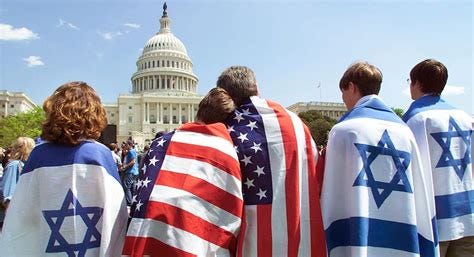Leadership Through Social Capital - Ḥayyei Sarah 5785
What Avraham Avinu, Robert Putnam, and Thanksgiving have in common
If you squint a bit, you can see in Thanksgiving hints of Sukkot and Pesaḥ. It’s a harvest festival, with appropriate themes and foods, and if you’re doing it right, there should be a seder-like attempt to have a discussion around the table about the things for which we are grateful.
But one essential message of Thanksgiving, on top of the gratitude, is that of leadership through social capital. Allow me to explain.
I have learned in my 17 years as a rabbi that the foundation for navigating all of the complexities of life and individuals and groups is investing in knowing people. Hearing their stories. Being with their families. Listening to them and understanding the challenges they face. Being there in moments of joy and grief, sickness and health and mourning. And never being complacent; always seeking to build, to make connections, to establish bonds. And by the way, that is as true for everybody else as it is for rabbis.
Parashat Ḥayyei Sarah opens with our matriarch Sarah’s death. Seeking a reason for her seemingly sudden demise (at the age of 127), Rashi cites a midrash blaming the episode of the Aqedah, the troubling story of the Binding of Isaac which we read last week, as being the emotional blow which killed her. In the opening verses of Ḥayyei Sarah, Avraham “eulogizes and cries” for Sarah.
And then, Avraham gets up from shiv’ah, and apparently concludes his mourning. And then what does he do? He looks to the future. He acts. He expresses a kind of soft leadership.
He negotiates with the Hittites for a burial place, an episode which references the way business negotiations are conducted to this very day: not simply an exchange of money and goods, but a discussion, including respectful statements of honor and friendship and trust. And then he sets himself to the task of finding a wife for Yitzḥaq. He sends his servant Eliezer, who begins his journey with the first words of prayer mentioned in the Torah (Bereshit / Genesis 24:12), and then proceeds to find Rivqah, who graciously offers water and food and lodging, and after much formality and camel-feeding, the match between Yitzḥaq and Rivqah is sealed. The episode concludes (24:67) by reporting that וַיִּנָּחֵ֥ם יִצְחָ֖ק אַחֲרֵ֥י אִמּֽוֹ, that Yitzḥaq “found comfort after his mother’s death.”
In other words, Avraham’s response to his grief is mourn appropriately, but not excessively. Not to wallow, or to lash out, or really any other sort of emotional response following his initial crying. Rather, it is to build, to make connections. To establish bonds. To think about creating the future for his family and his people. And the result is that the actions that Avraham and Eliezer had undertaken assuaged the grief of Yitzḥaq, and presumably Avraham as well.
I know that for many of us, the world might feel like it is crumbling. Deep polarization of American society, the ongoing war in Israel, craziness on the national stage, the ICC issuing an arrest warrant for the most prominent Jewish leader in the world, and so forth - all of these things can easily lead to a feeling of hopelessness about our future. Many of us are yearning, if not mourning, for the past. Some of us are literally crying; I have not been afraid to admit to you all that over the last 414 days my tears have been just below the surface, and rising up more frequently than in any previous year of my life.
In this context, how might we be inspired by Avraham in this parashah? How might we look to the future and build, like Avraham in the wake of Sarah’s death?
Issues of military conflict and ceasefires and shoring up democracy must be left to the people in real positions of power. But we who are not elected officials or UN ambassadors or think-tank guys or nationally-syndicated columnists have power as well. And that power is something to which I have returned over and over again. It is “social capital,” an idea put forward by Harvard political scientist Robert Putnam. In brief, social capital is the intangible glue which binds people together, a measure of the interconnectedness of our society. We acquire it by meeting and interacting with people who are outside our usual range of acquaintances: by playing on teams - bowling leagues and bridge nights and pickup soccer, by joining neighborhood watch and beautification organizations, by joining PTOs and getting involved in aid organizations such as food pantries, book clubs, by volunteering for arts organization, even by rubbing elbows with visitors at kiddush. And it is good for us as individuals and for our society, particularly when these interactions do not involve politics or religion or the things which divide us.
And, as Putnam describes in painful detail in his book on the subject from 2000, Bowling Alone, many indicators show that our social capital in America peaked in about 1965, and has been on the steady decline since. Without social capital, we do not feel connected to each other, leading to many social ailments, from flouting traffic laws to reduced trust in one another to increased frequency of government scandals. David Brooks, in an interview last week on PBS, spoke about the “hyper-individualism” exhibited in America over the last 60 years, and its many corrosive effects.
So here is some good news about the fact that you are here today: faith-based communities, such as synagogues, are an excellent source of social capital. Just by being here today, whether you have been attending Shabbat morning services at Beth Shalom for forty years or you are a first-time visitor, you are taking part in a fundamentally healthy activity that not only helps fulfill the mitzvot of daily prayer and keeping the Shabbat, but is also helping you to connect to others and build social capital. (Here is a good moment, BTW, to plug Beth Shalom’s Ḥavurah program, which we established two years ago and are about to launch a new iteration, including the Shabbat dinner on Dec. 13th.)
So here is the challenge: as I pointed out two weeks ago, one of the pitfalls we face is that it is just too easy today to never leave your ideological comfort zone, to break bread only with those with whom we agree. And that is really not good for society. And so we need to think beyond the synagogue walls. The Talmud, by the way, teaches us in Massekhet Berakhot (34b) that a synagogue must have windows, to help us focus our prayers not on ourselves, but on what is outside.
And so we need to make even more connections. We need to seek out and build social capital with people not like us. And we need to find ways to meet and bond without focusing on what divides us. As a synagogue, for example, we could establish a relationship with a church or mosque or gurdwara or even an atheist society, and meet to discuss anything but politics or religion.
And just to address what may be an elephant hanging out behind me on the bimah, many of us may feel burned by former allies this past year. But we are too tiny a people to be able to afford staying cloistered within our community as Jews. We the Jews, a people representing 0.2% of the world population, cannot remain isolated. And so we must continue to reach out.
There is, in the observance of Thanksgiving, a collective sense of Americanism which says something positive about our nation: that we set aside a day to gather with family and friends regardless of politics or religion or ethnic background or any of the ways in which we are inclined to divide ourselves. It is a day on which, I hope, we all acknowledge some gratitude for what makes this nation unique, and the values that we share.
בֶּן זוֹמָא אוֹמֵר… אֵיזֶהוּ גִבּוֹר, הַכּוֹבֵשׁ אֶת יִצְרוֹ, שֶׁנֶּאֱמַר (משלי טז) טוֹב אֶרֶךְ אַפַּיִם מִגִּבּוֹר וּמשֵׁל בְּרוּחוֹ מִלֹּכֵד עִיר.
Ben Zoma said: Who is mighty? The one who subdues his evil inclination, as it is said (Proverbs 16:32): “The one who is slow to anger is better than the mighty; and he that rules his spirit is better than he that takes a city.” (Pirqei Avot 4:1)
Ben Zoma’s words teach us that leadership is not about might. It is not about the loudest voice, or the strongest army, or the most rational foreign policy. It is rather about moderating ourselves. It is about keeping our emotions in check, not responding in anger or grief or frustration, but rather about the soft leadership of personal connection.
Perhaps on this Thanksgiving, as you are considering those things for which you are grateful, you might ask those gathered around the table to consider how you might create better, stronger bonds with other Americans, how you might reach out to people not like you to build a healthier, more resilient society. And perhaps you might consider how, like Avraham, we all might lift ourselves up from our current malaise to act, to build, to lead.






